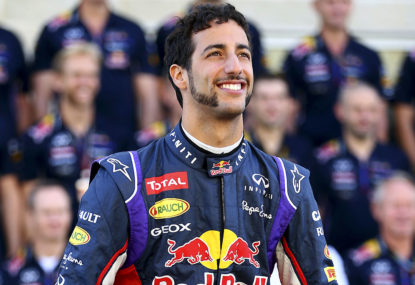Japanese Grand Prix talking points: Verstappen returns to winning ways as Perez solidifies grip on Red Bull seat
Red Bull and Max Verstappen vaulted right back to the top of the charts with a win in Suzuka, after his DNF in Melbourne.

As much as Formula One has a capacity to entertain on the track, the high-stakes politicking off the field can be equally, if not more, interesting.
Most fascinating are the tactics Formula One employs in its darkest moments – the sort of subconscious yet blatantly wilful tearing down of itself for the benefit of seemingly no-one, as if the aggressor were engaged in a particularly terrifying sleepwalking episode.
Last week Red Bull launched a thinly-veiled attack on Formula One by way of a glowing appraisal of the sport’s rapidly growing rival, the World Endurance Championship.
This is, of course, despite its extremely limited WEC portfolio and significant investment in Formula One – namely ownership of two teams, numerous driver contracts, a junior driver development programme and subsequent investment in junior single seater categories. It’s a particularly incendiary lose-lose attack.
Again, it is not unlike Formula One to engage in such unhealthy levels of self-deprecation, and Red Bull’s spectacular outburst is only the latest symptom of deep intra-sport unrest
The 2015 Bahrain Grand Prix played host to yet more internal ructions – namely regarding costs (again), engines (again), and the calendar (again) – as was the case in Sakhir last year. Perhaps there’s something in the Bahraini desert air because, just in 2014, all this bickering comes despite significant on-track action.
But the mind-numbing repetitiveness is where the consistency ends. Consider the costs debate, for example. There is a fantastic irony in Formula One simultaneously calling for lower costs and brand new engine architecture just two years after the last hugely expensive power unit revolution took place.
It is similarly fanciful to believe, as this sport seems to do, that the current regulation set must be responsible for double-digit percentage audience decline when the downward trend started long before the modern turbo era.
Meanwhile, we’ve lost the German Grand Prix, and never mind the hardline “no money, no honey” (to repurpose a phrase) stance on the historic Italian Grand Prix and its purported replacement with a race in Azerbaijan, ambitiously styled as the “Grand Prix of Europe”.
Similarly the move to a broadcast model dominated by subscription television rarely features in debates about falling viewership, and the stuttering launch of the new Formula One website, much of which remains ringed behind a sometimes-functioning paywall, figures minimally when considering audience engagement.
At times the contradictions are astounding. For all its talk of wanting to return to the racing of the good ol’ days, Formula One has wiped most of the circuits of yesteryear from its calendar. Its longing to promote technological development is deeply incongruous with its inability to agree on rules both present and future.
Also, despite rapidly declining fan numbers, its response has been to make the sport less accessible to most viewers.
But there is nothing broken in Formula One that a cohesive, holistic strategy couldn’t solve. The answers are all within reach, but the only thing the sport’s proponents can agree on is mutual self-destruction – and it is this perpetually haphazard, ad hoc, and nonsensical approach to long-term thinking that continues to undermine its own success.
Yes, that’s right – despite all of this, Formula One remains a viable product. The racing is good – notwithstanding the odd dull grand prix from which no racing series in history has ever been immune – some of the world’s biggest manufacturers are active participants, and Formula One continues to flaunt some of the most significant marketing power of any sport in the world.
It is in this way that comparisons between Formula One and the WEC, like Red Bull’s questionable “hot topic”, are fallacious. Endurance racing has existed for as long as any other form of motorsport, and has coexisted with Formula One and open-wheel racing for the latter’s entire existence.
The WEC’s success is of its own making, and these two giants of motorsport have always occupied two inherently different niches in the auto racing community.
But the World Endurance Championship is soundly beating Formula One in one of the few facets in which the two can be fairly compared, and in the field of planning and vision there is no competition.
While the WEC ruthlessly pursues its goals with concern for only its self-worth, Formula One bobs along listless and without an identifiable strategy for so much as the short-term future.
Formula One’s accrued goodwill is finite, as it will learn should it continue to witlessly spend it on absurd profit-making ventures and endless bickering with the FIA, the commercial rights holder, and the teams negotiating their way into a power vacuum.
The only foreseeable result is more flailing of the sort in which Red Bull is now well practised.
More than ever the sport needs incisive decision-making. The time is now to plot course, if only someone was capable of cutting through the rabble to grab the wheel.
Follow @MichaelLamonato on Twitter, where he sometimes tweets amusing photos of Pastor Maldonado.